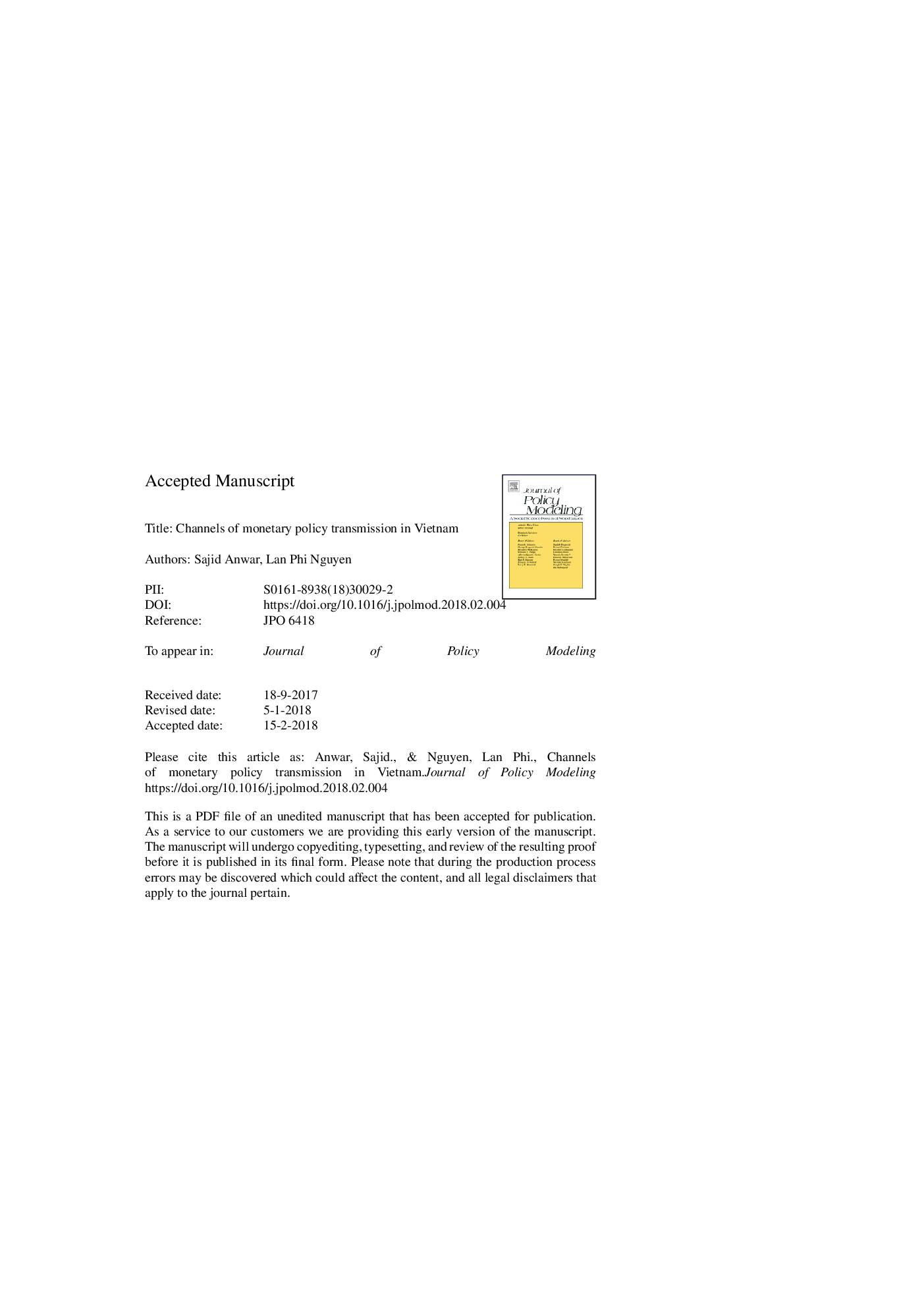| Article ID | Journal | Published Year | Pages | File Type |
|---|---|---|---|---|
| 8954618 | Journal of Policy Modeling | 2018 | 32 Pages |
Abstract
Since the economic reforms launched in 1986, the Vietnamese economy has registered impressive economic growth. While foreign investment is providing much needed capital, through the conduct of monetary policy, the State Bank of Vietnam (SBV), which is an integral part of the government of Vietnam, is also playing an important role in nurturing the economic growth. The aim of this paper is to evaluate the success of the SBV policies. Monetary policy actions affect all sectors of real economies with a significant lag. Without a good understanding of the transmission mechanism, monetary policy actions may not achieve the desired outcomes. Using quarterly data from 1995 to 2010, this paper focuses on monetary policy transmission mechanisms in Vietnam. Specifically, we consider the dynamic response of the Vietnamese economy to interest rate, exchange rate and foreign shocks. The estimated results based on structural vector autoregressive (SVAR) methodology suggest that monetary shocks tend to have a strong influence on Vietnam's output. We find that Vietnam's monetary policy is relatively more susceptible to foreign shocks.
Related Topics
Social Sciences and Humanities
Economics, Econometrics and Finance
Economics and Econometrics
Authors
Sajid Anwar, Lan Phi Nguyen,
